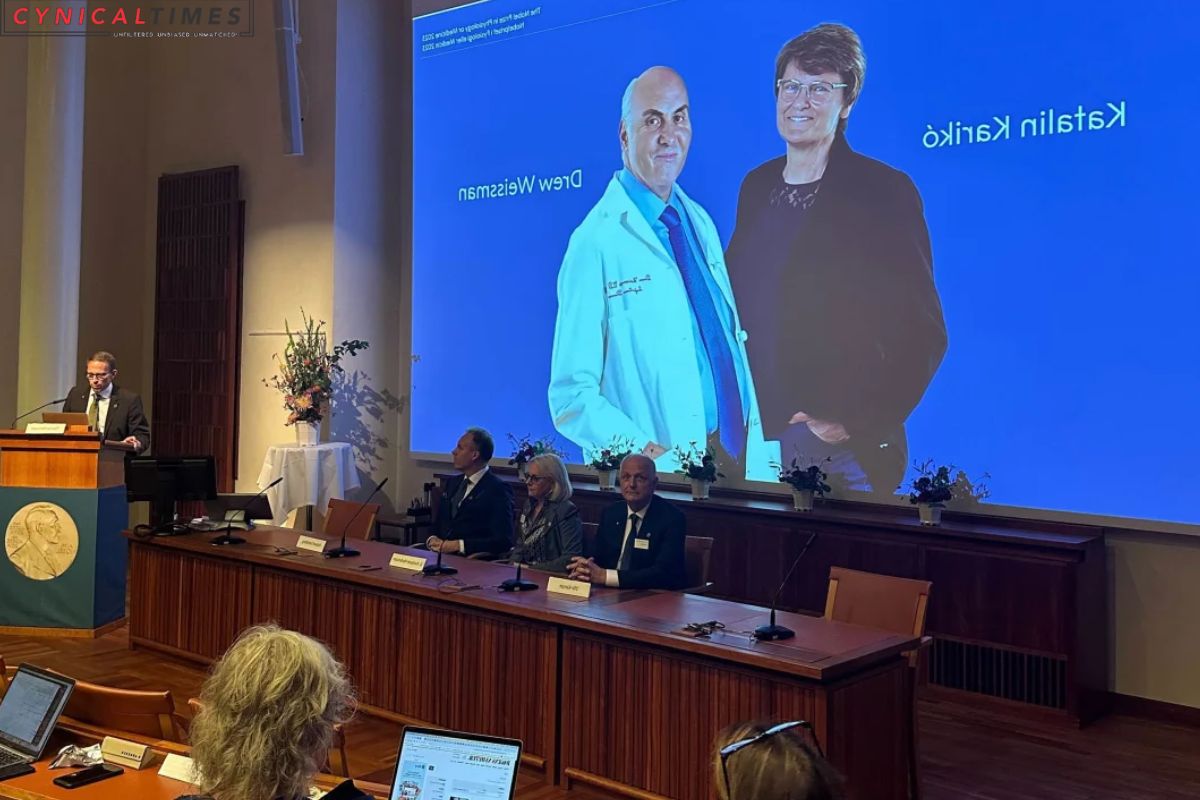Nobel Prize Winners Karikó and Weissman: Katalin Karikó and Drew Weissman have won the Nobel Prize in Physiology or Medicine for 2023. This is a historic honour for their work in science. Their groundbreaking work on mRNA vaccines has been nothing short of revolutionary, especially in the global fight against the COVID-19 pandemic.
The Nobel Prize committee, which is based in Sweden, made the long-awaited choice public. They praised Karikó and Weissman for their essential work, which changed much of what we know about how mRNA affects the immune system. Their path to this prestigious award shows how hard and creative they are and how much their work has changed the world.
Weissman, an American doctor, and Karikó, a famous scientist from Hungary, are teachers at the University of Pennsylvania. They have been essential in laying the groundwork for making vaccines based on mRNA. This new way of thinking has helped companies like Pfizer and BioNTech make COVID-19 vaccines faster and opened up new ways to study medicine.
mRNA vaccines are based on a brilliant idea. DNA is often compared to a whole cookbook with all the directions for life. At the same time, mRNA is a short-lived, single-stranded genetic code that cells can read and use to make specific proteins. In the case of mRNA vaccines, this genetic code tells cells to make a small, harmless part of the virus. This makes the body produce antibodies and activates the immune system. Surprisingly, this method only uses the genetic code of the virus. No live or weakened viruses are injected.
MRNA vaccines stand out because they can change and increase. This groundbreaking technology has a lot of promise for treating cancer, other diseases, and infectious diseases like malaria, RSV, and HIV in a more personalized way. The Nobel committee knows that mRNA-based therapies have a lot of promise to deliver therapeutic proteins and treat many types of cancer.
ALSO READ: Erythritol Health Risks: Links Sugar Substitute to Blood Clots, Heart Attacks, and Strokes
This Nobel Prize was a challenging thing to get. When Karikó and Weissman published their early study of mRNA in 2005, it didn’t get much notice. But in the end, their hard work and persistence paid off. The results of their study led to one of the most significant advances in modern medicine.
No one can say enough about how essential mRNA vaccines are. Since it was first made available, more than 13 billion doses of mRNA and other COVID-19 vaccines have been given to people worldwide. This has saved many lives, prevented severe cases of the illness, and lessened the overall effect of the disease. These vaccinations have been a big part of how towns have reopened from the pandemic.
Katalin Karikó and Drew Weissman’s work is admired for what it has done for science and how it has inspired people and given them hope. The spirit of discovery and invention that drives scientific progress is shown by how hard they work to push the boundaries of knowledge and how determined they are to solve the world’s biggest health problems.
As Nobel Prizes are given out in many fields, Katalin Karikó and Drew Weissman’s incredible journey reminds us of the power of science to change the world and the vast effect that innovation can have on our future. Their work has changed medicine in a way that can’t be undone, and their impact will affect health care and prevent illness for a long time to come.


